Ha Noi - A Century Ago
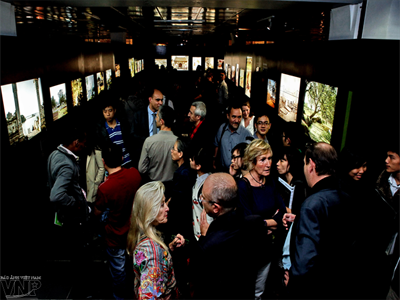 |
| The exhibition displays 60 color photos of Ha Noi during the 1914-1917 period by Leon Busy, a lieutenant of the French Army |
According to the organization board, 60 color photos at the exhibition were selected from 1,500 works of Ha Noi taken by French Photographer Leon Busy during the 1914-1917 period when he was living in Viet Nam.
These photos, which have been preserved at Albert Kahn Museum, France, were photographed using autochrome, an early color photography process, patented in 1903 by the Lumière brothers in France. Through his lens, Ha Noi of the early years of the 20th century appeared with a simple and ancient beauty imbued with oriental cultural features.
According to Prof. Phan Huy Le, Chairman of the Viet Nam Historical Science Association, these photos conveyed a message about Vietnamese customs and habits because they showed the inheritance after a century of changes.
The exhibition left long lasting impressions on audiences with photos of daily life, costumes and religious beliefs of Hanoians, trade streets, landscapes of the West Lake, Hoan Kiem Lake, Long Bien Bridge and Van Mieu – Quoc Tu Giam (the Temple of Literature - the First University) that show Ha Noi, quite different from that of today. Some photos also clearly reflect the customs, beliefs and religion of the Vietnamese people in the past, such as the construction of a tombstone; the worship of ancestors; the arrangement of scared animals as tigers, elephants and turtles in temples and pagodas and ceremonies to express the gratitude of children to parents.
Talking about the first color photos about Ha Noi, Historian Duong Trung Quoc said: “For historians like us, the photos are of great significance with visual and aesthetic values. If there were not images like these, future generations would be completely unfamiliar of the historical space. Thus, these photos of Leon Busy help people understand more about Ha Noi of the past. If Viet Nam continues exploring the heritages with the support of French friends, the historical document resource of Viet Nam will be more diversified.”
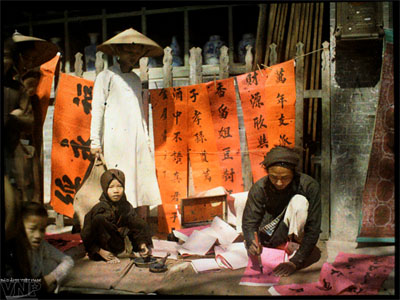 |
| A photo of a scholar writing parallel sentences on a street in Ha Noi (1914 - 1917) |
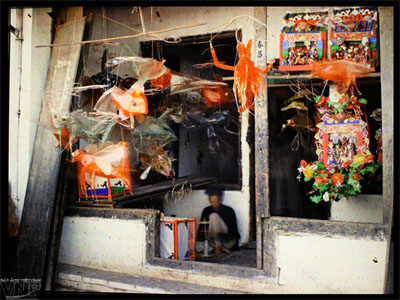 |
| A stall selling toys for the Mid-Autumn Festival on Hang Gai Street over 100 years ago |
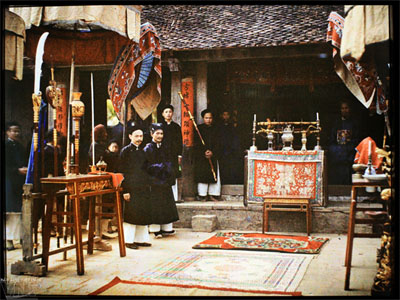 |
| Preparing for the rite of praying for luck, happiness and prosperity in the New Year in a village on the outskirts of Ha Noi in 1915 |
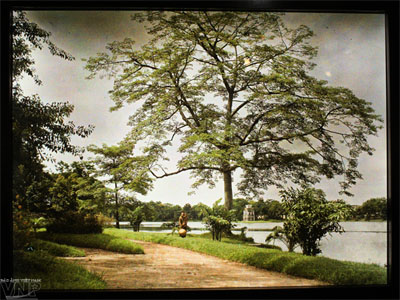 |
| A photo of Hoan Kiem Lake and the Tortoise Tower in 1915 |
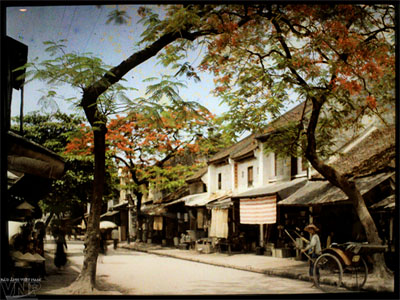 |
| Hang Thiec Street in 1915 |
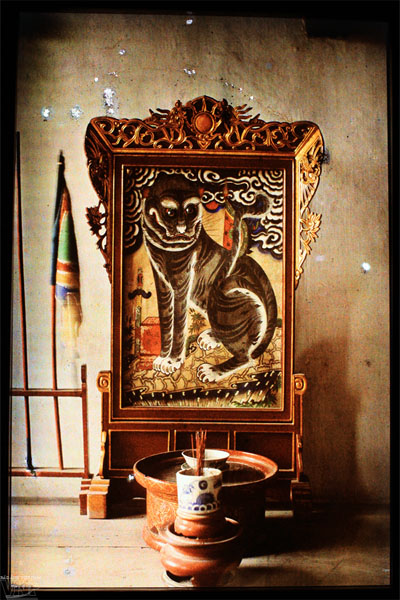 |
| A spiritual corner of a temple in Hanoi in 1915 |
What the stars mean:
★ Poor ★ ★ Promising ★★★ Good ★★★★ Very good ★★★★★ Exceptional
Latest News
More News
- Vietjet launches mega year-end ticket promotion (December 10, 2025 | 11:33)
- Vietjet launches daily Manila flights to celebrate year-end festive peak season (December 05, 2025 | 13:47)
- Phu Tho emerges as northern Vietnam’s new tourism hub (December 01, 2025 | 17:00)
- Vietjet completes Airbus A320/A321 updates ahead of deadline (December 01, 2025 | 09:49)
- Vietjet resumes Con Dao flights from early December (November 28, 2025 | 15:24)
- Free tickets, Lunar New Year promotions on offer at Vietjet Mega Livestream (November 26, 2025 | 15:32)
- UNIQLO unveils upgraded heat-retention wear at Hanoi event (October 26, 2025 | 10:00)
- Vietnam named among world’s top four culinary destinations (October 24, 2025 | 17:09)
- Vietnam and Denmark strengthen dialogue on sustainable fashion (October 20, 2025 | 09:11)
- Fusion rolls out special initiatives to celebrate Vietnamese Women’s Day (October 17, 2025 | 20:00)
















 Mobile Version
Mobile Version